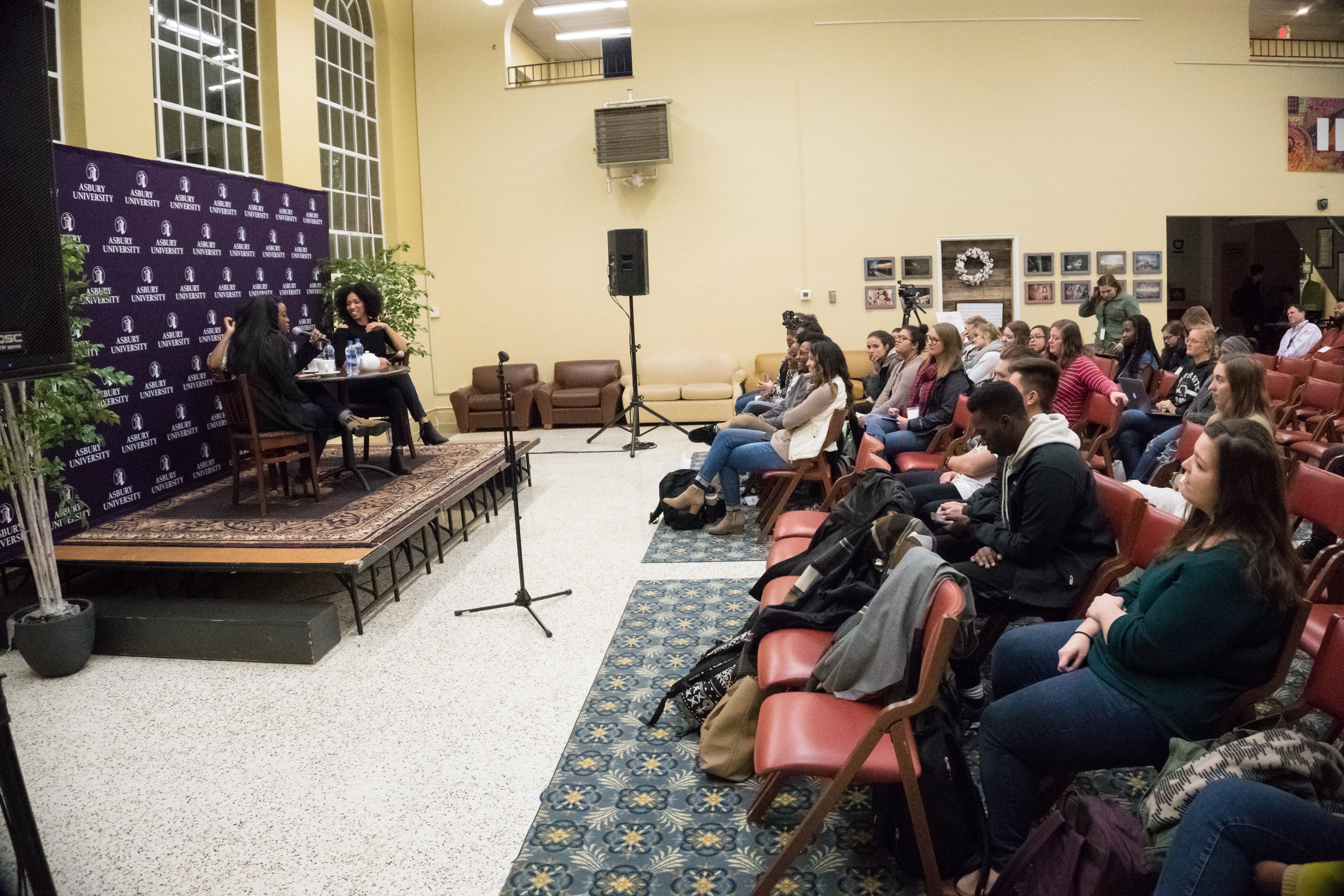Asbury’s Embrace Conference spotlights faith, social justice
Published 9:59 am Thursday, December 13, 2018

- 2018, Christina Edmondson, Conference, Embrace Conference, podcast, Stuce, Michelle Higgins, Ekemini Uwan
From staff reports
Asbury University’s inaugural Embrace Conference recently searched to answer the question of what faith looks like when individuals subtract the cultural values and systems they have been raised in.
Held last month, the event was created to provide a space of exploration, set up in a series of sessions and events that allowed conference attendees to analyze what redemptive social action looks like in the context of Christian faith.
According to Assistant Vice President for Intercultural Affairs the Rev. Esther Jadhav, the Embrace Conference goes hand in hand with Initiative III of Imagine 2022 — an initiative created to “cultivate a culturally responsible Christian community that practices hospitality, mutuality, redemptive social action and grace-filled reconciliation.”
“While our conference is titled ‘Embrace,’ it has the theme of redemptive social action and it comes directly out of our strategic plan,” Jadhav said. “So, the title of our conference is also the title of our bullet in the strategic plan for the university. That really motivates us to continue to build a campus that is culturally responsible in all dimensions.”
The conference featured keynote speaker Christina Edmondson, who serves as the dean of intercultural student development at Calvin College and co-hosts the Truth’s Table podcast.
Edmondson’s podcast co-hosts Michelle Higgins and Ekemini Uwan also took part in conference events, most notably in a live recording of Truth’s Table in the Student Center. Gathered around a table with the podcast’s signature three large white teacups covering its surface, Edmondson, Higgins and Uwan reflected on their experiences of black identity and faith during their college years in front of a live audience.
“Why is the topic of social justice so provocative in the contemporary Christian world?” Edmondson said, opening up the conference at Tuesday’s plenary session in the Gray Room.
She then continued to speak in depth about the cost of creating false theologies that are convenient to the current political climate, or that make a majority group comfortable to the detriment of minority groups.
“Theologies of convenience that you and I create because of the moment in time that we’re in, that give us access and inclusion, that give us a sense of safety, help us to avoid the high cost of rectifying injustice,” Edmondson said. “Lovelessness is our greatest threat to personal piety, personal holiness and obedience to God’s word.”
Edmondson addressed the student body in an informative Wednesday morning chapel service about how to become a more inclusive leader.
“Our presence ought to bring salt and light to society and, practically speaking, that’s a lot of what social justice is, bringing salt and light to society,” Edmondson said. “Salt flavors and brings out the best and it slows decay and it’s no good if it’s kept in the cabinet. Light illuminates and exposes. The church represents that town built on a hill that cannot be hidden.”





